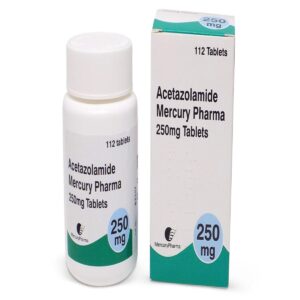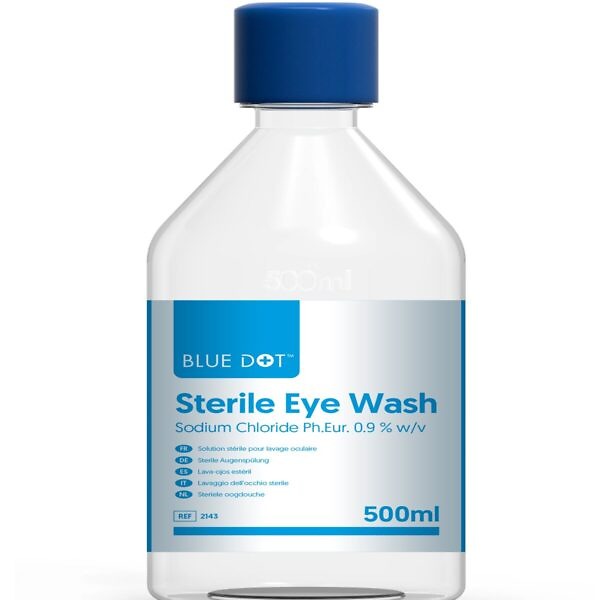Menopur 1200iu Vial Multidose Menotrophin , Pack of 1
- Treat infertility In women
- Treat Low sperm count in men
- Prescription Required.
- Treat infertility In women
- Treat Low sperm count in men
- Prescription Required.
Original price was: £480.20.£377.00Current price is: £377.00.
CompareCompare- Treat infertility In women
- Treat Low sperm count in men
- Prescription Required.
- Description
- Additional Information
- Brand
- How To Use
- Product Details
- Side Effects
- ingredients
- Reviews (0)
- Questions & Answers (1)
Menopur 1200iu Vial Multidose Menotrophin, Pack of 1
Menopur 1200iu Vial is a gonadotropin hormone medication used to treat infertility in women. It contains a purified mixture of follicle stimulating hormone (FSH) and luteinizing hormone (LH). These hormones are produced naturally in both males and females and help the reproductive organs to work normally. In women, Menopur 1200iu Vial helps to stimulate the development of eggs in the ovaries. This medication is given by injection into the fatty tissue just below the skin.
What Menopur 1200iu Vial is?
Menopur 1200iu Vial contains the active substance menotrophin which belongs to a group of medicines called gonadotrophins. Menotrophin is a highly purified mixture of two hormones called follicle stimulating hormone (FSH) and luteinizing hormone (LH). FSH and LH are natural hormones produced in both males and females. They help the reproductive organs to work normally.
The FSH and LH in Menopur are obtained from the urine of postmenopausal women.
What Menopur 1200iu Vial is used for
In women, Menopur 1200iu Vial is used to treat infertility in the following two situations:
• To promote the release of eggs from the ovaries (ovulation) in women who are not ovulating including with polycystic ovarian disease and who have not responded to treatment with another medicine called clomiphene citrate.
• To help multiple follicles and therefore eggs to develop in women having in vitro fertilisation (IVF) treatment or other
types of ‘assisted conception’. The eggs are then harvested and fertilised outside the body.
In men, MENOPUR is used to treat infertility in the following situation:
• Low sperm count (oligospermia).
What is Infertility
Infertility is when a couple cannot get pregnant (conceive) despite having regular unprotected sex.
Around 1 in 7 couples may have difficulty conceiving.
About 84% of couples will conceive naturally within a year if they have regular unprotected sex (every 2 or 3 days).
For couples who have been trying to conceive for more than 3 years without success, the likelihood of getting pregnant naturally within the next year is 1 in 4, or less.
Some people get pregnant quickly, but for others it can take longer. It’s a good idea to see a GP if you have not conceived after a year of trying.
Women aged 36 and over, and anyone who’s already aware they may have fertility problems, should see their GP sooner.
They can check for common causes of fertility problems and suggest treatments that could help.
Infertility is usually only diagnosed when a couple have not managed to conceive after a year of trying.
There are 2 types of infertility:
- primary infertility – where someone who’s never conceived a child in the past has difficulty conceiving
- secondary infertility – where someone has had 1 or more pregnancies in the past, but is having difficulty conceiving again
Fertility treatments include:
- medical treatment for lack of regular ovulation
- surgical procedures such as treatment for endometriosis, repair of the fallopian tubes, or removal of scarring (adhesions) within the womb or abdominal cavity
- assisted conception such as intrauterine insemination (IUI) or IVF
The treatment offered will depend on what’s causing the fertility problems and what’s available from your local clinical commissioning group (CCG).
Private treatment is also available, but it can be expensive and there’s no guarantee it will be successful.
It’s important to choose a private clinic carefully. You can ask a GP for advice, and should make sure you choose a clinic that’s licensed by the Human Fertilisation and Embryology Authority (HFEA).
Some treatments for infertility, such as IVF, can cause complications.
For example:
- multiple pregnancy – if more than 1 embryo is placed in the womb as part of IVF treatment there’s an increased chance of having twins; this may not seem like a bad thing, but it significantly increases the risk of complications for you and your babies
- ectopic pregnancy – the risk of having an ectopic pregnancy is slightly increased if you have IVF
Read more about how infertility is treated.
There are many possible causes of infertility, and fertility problems can affect either partner. But in a quarter of cases it is not possible to identify the cause.
Common causes of infertility include:
- lack of regular ovulation (the monthly release of an egg)
- poor quality semen
- blocked or damaged fallopian tubes
- endometriosis – where tissue that behaves like the lining of the womb (the endometrium) is found outside the womb
RISK FACTORS
There are also several factors that can affect fertility.
These include:
- age – fertility declines with age
- weight – being overweight or obese (having a BMI of 30 or over) reduces fertility; in women, being overweight or severely underweight can affect ovulation
- sexually transmitted infections (STIs) – several STIs, including chlamydia, can affect fertility
- smoking – can affect fertility: smoking (including passive smoking) affects your chance of conceiving and can reduce semen quality; read more about quitting smoking
- alcohol – the safest approach is not to drink alcohol at all to keep risks to your baby to a minimum. Drinking too much alcohol can also affect the quality of sperm (the chief medical officers for the UK recommend adults should drink no more than 14 units of alcohol a week, which should be spread evenly over 3 days or more)
- environmental factors – exposure to certain pesticides, solvents and metals has been shown to affect fertility, particularly in men
- stress – can affect your relationship with your partner and cause a loss of sex drive; in severe cases, stress may also affect ovulation and sperm production
There’s no evidence to suggest caffeinated drinks, such as tea, coffee and colas, are associated with fertility problems.
Gonal F 1200IU Vial Reviews
After using Gonal F 1200IU Vial, it’s helpful to let others know about your experience. Reviews of an item help other users know that medicines received have helped the condition it is claimed for, how well the treatment worked or any issues to be aware of. We invite our users to leave a review of both their treatment and of the service provided. Click on the reviews tab to see if there has been feedback on this item.
Price of Menopur 1200iu Vial in UK
Where to buy Menopur 1200iu Vial
Menopur 1200iu Vial is available to buy with a prescription at Dock Pharmacy Essex UK, UK Online Pharmacy.
| Brand | |
|---|---|
Brand
MENOPUR
How To Use
How to use MENOPUR
Always use MENOPUR exactly as your doctor or nurse has told
you. You should check with your doctor, nurse or pharmacist if
you are not sure.
Using MENOPUR
• You will have MENOPUR as an injection under the skin.
• You will either be given MENOPUR by a doctor or nurse or
you will be taught how to give it to yourself.
• MENOPUR comes as a dry powder in small bottles (vials).
• Once the dry powder has been mixed with the solvent it can
be stored for up to 28 days at room temperature (not more than 25°C).
• This mixed solution can now be used for multiple injections.
The dose and length of your treatment
• The dose, and how long your treatment lasts, depends on why you are using MENOPUR and how well it works.
• Your doctor or nurse will monitor how you respond to your
treatment.
• This will help them to work out what dose you need and how
long you need to use MENOPUR for.
In women:
i Women who are not ovulating (not producing eggs):
Treatment should start within the first 7 days of the menstrual
cycle (day 1 is the first day of your period). Treatment should be
given every day for at least 7 days.
The starting dose is normally 75-150 IU daily but this may be
adjusted depending on your response (up to a maximum of 225
IU). A particular dose should be given for at least 7 days before
the dose is changed by your doctor. It is recommended that the
dose should be increased by 37.5 IU per adjustment (and not
more than 75 IU). The cycle of treatment should be abandoned if
there is no response after 3 weeks.
When a good response is obtained a single injection of another
hormone called human chorionic gonadotrophin (hCG), at a
dose of 5,000 to 10,000 IU, should be given 1 day following
the last MENOPUR injection. It is recommended to have sexual
intercourse on the day of the hCG injection and the day after.
Alternatively, artificial insemination (injection of sperm directly
into the womb) may be performed. Your doctor will closely
monitor your progress for at least 2 weeks after you have
received the hCG injection.
Your doctor will monitor the effect of MENOPUR treatment. If
an excessive response occurs, your doctor may decide to stop
treatment with MENOPUR and not give you the hCG injection.
In this case, you will be instructed to use a barrier method of
contraception (e.g. condom) or not have sexual intercourse until
your next period has started. For the following cycle your doctor
will give you a lower dose of MENOPUR than before.
ii Women in assisted reproductive technology programs:
If you are also receiving treatment with a GnRH agonist (a
medicine which helps a hormone called Gonadotropin Releasing
Hormone (GnRH) to work), MENOPUR should be started
approximately 2 weeks after the start of the GnRH agonist
therapy.
If you are also receiving treatment with a GnRH antagonist,
MENOPUR treatment should be started on day 2 or 3 of the
menstrual cycle (day 1 is the first day of your period).
MENOPUR should be given every day for at least 5 days. The
initial dose of MENOPUR is normally 150-225 IU. This dose may
be increased according to your response to the treatment up to
a maximum of 450 IU per day. The dose should not be increased
by more than 150 IU per adjustment. Normally treatment should
not continue for more than 20 days.
If enough egg sacs are present, you will be given a single
injection of a medicine called human chorionic gonadotrophin
(hCG) at a dose of up to 10,000 IU to induce ovulation (release of
an egg).
Your doctor will closely monitor your progress for at least 2
weeks after you have received the hCG injection.
Your doctor will monitor the effect of MENOPUR treatment. If
an excessive response occurs, your doctor may decide to stop
treatment with MENOPUR and not give you the hCG injection.
In this case, you will be instructed to use a barrier method of
contraception (e.g. condom) or not have sexual intercourse until
your next period has started. For the following cycle your doctor
will give you a lower dose of MENOPUR than before.
In men:
For low sperm count:
• The usual dose is 75 or 150 IU two or three times a week.
• Treatment is normally continued for at least 3 or 4 months.
INSTRUCTIONS FOR USE
If your doctor has asked you to inject MENOPUR yourself, you
should follow the instructions provided below.
The first injection of MENOPUR should be given under the
supervision of a doctor or nurse.
DISSOLVING MENOPUR:
MENOPUR is provided as a powder in a vial, and must be
dissolved with two syringes with liquid (solvent) before it
is injected. The solvents which you should use to dissolve
MENOPUR are provided in a pre-filled syringes in the package.
Please note: 1 drop of solvent can dissolve the powder
immediately, leading to the impression that no powder was
present in the vial. Check the vial for powder before mixing
the solvent.
As this vial contains medication for several days of treatment,
you need to make sure you only draw up the amount of
medication that was prescribed by your doctor. Your doctor
has prescribed you a dose of MENOPUR in IU (units). To obtain
the correct dose you should use one of the 18 administration
syringes graduated in FSH/LH IU units provided
Product Details
What you need to know before you use
MENOPUR
Before starting treatment with MENOPUR, you and your partner
should be evaluated by a doctor for the causes of your fertility
problems. In particular you should be checked for the following
conditions so that any other appropriate treatment can be given:
• Underactive thyroid or adrenal glands
• High levels of a hormone called prolactin (hyperprolactinemia)
• Tumours of the pituitary gland (a gland located on the base of
the brain which produces certain hormones, including growth
hormones)
• Tumours of the hypothalamus (an area located under the part
of the brain called the thalamus which controls the conditions
within your body including body temperature and blood
pressure)
If you know you have any of the conditions listed above, please
tell your doctor before starting treatment with MENOPUR.
Do not use MENOPUR if:
• You are allergic (hypersensitive) to menotrophin or any of the
other ingredients of MENOPUR (listed in Section 6).
• You have a tumour in your pituitary gland.
• You have a tumour in the hypothalamus.
Also, if you are a woman do not use MENOPUR if:
• You have tumours of the womb (uterus), ovaries or
breasts.
• You have sacs of fluid known as cysts on your ovaries (ovarian
cysts) or enlarged ovaries that are not due to polycystic
ovarian disease (a condition that prevents eggs from being
released from the ovaries).
• You have bleeding from your vagina for an unknown
reason.
• You are having an early (premature) menopause.
• You have certain physical problems in your reproductive
organs (womb, fallopian tubes, ovaries or cervix).
• Your womb has been removed (hysterectomy).
• You have fibroid tumours (tumours in your womb that are not
cancer).
• You are pregnant or breast-feeding.
Also, if you are a man do not use MENOPUR if:
• You have cancer of your testicles.
• You have prostate cancer.
Do not use MENOPUR if any of the above applies to you. If you
are not sure, talk to your doctor, nurse or pharmacist before you
start using MENOPUR.
Warnings and precautions
Talk to your doctor or nurse if:
• You get pain or swelling of the stomach (abdomen)
• You get nausea or vomiting
• You get diarrhea
• You gain weight
• You have difficulty in breathing
• You get decreased urination (produce less urine)
Tell your doctor straight away, even if the symptoms develop
some days after the last injection has been given. These can be
signs of high levels of activity in the ovaries which might become
severe.
If these symptoms become severe, the infertility treatment
should be stopped and you should receive treatment in hospital.
Keeping to your recommended dose and careful monitoring
of your treatment will reduce your chances of getting these
symptoms.
If you stop using MENOPUR you might still experience these
symptoms. Please contact your doctor immediately if any of
these symptoms occur.
While you are being treated with this medicine, your doctor
will normally arrange for you to have ultrasound scans and
sometimes blood tests to monitor your response to treatment Being treated with hormones like MENOPUR can increase the
risk of:
• Ectopic pregnancy (pregnancy outside of the womb) if you
have a history of fallopian tube disease.
• Miscarriage
• Multiple pregnancy (twins, triplets, etc)
• Congenital malformations (physical defects present in baby at
birth).
Some women who have been given infertility treatment with
multiple medicines have developed tumours in the ovaries and
other reproductive organs. It is not yet known if treatment with
hormones like MENOPUR causes these problems.
Blood clot formation inside the blood vessels (veins or arteries)
are more likely to occur in women who are pregnant. Infertility
treatment can increase the chances of this happening, especially
if you are overweight or known with blood clotting disease
(thrombophilia) or if you or someone in your family (blood
relative) has had blood clots. Tell your doctor if you think this
applies to you.
Children
There is no relevent use of MENOPUR in children.
Other medicines and MENOPUR
Tell your doctor if you are taking, have recently taken or might
take any other medicines, including medicines obtained without
a prescription.
Clomiphene citrate is another medicine used in the treatment of
infertility. If MENOPUR is used at the same time as clomiphene
citrate the effect on the ovaries may be increased.
Pregnancy and breast-feeding
MENOPUR should not be used during pregnancy or breastfeeding.
Driving and using machines
MENOPUR is unlikely to affect your ability to drive and use
machines.
Important information about some of the ingredients of
MENOPUR
MENOPUR contains less than 1 mmol sodium (23 mg) per
dose, so it is essentially ‘sodium-free’. MENOPUR also contains
lactose (which is a type of sugar). If you have been told by your
doctor that you cannot tolerate or digest some sugars (have an
intolerance to some sugars), talk to your doctor before using this
medicine.
How to store MENOPUR
• Keep out of the sight and reach of children.
• Do not use MENOPUR after the expiry date which is stated
on the packaging. The expiry date refers to the last day of that
month.
• Before reconstitution, store in a refrigerator (2°C – 8°C).
• After reconstitution, the solution may be stored for a maximum
of 28 days at not more than 25°C.
• Do not freeze before or after reconstitution.
• Medicines should not be disposed of via wastewater or
household waste. Ask your pharmacist how to dispose of
medicines no longer required. These measures will help to
protect the environment.
Side Effects
Like all medicines, MENOPUR can cause side effects, although
not everybody gets them.
Side effects that can happen in women:
If you notice any of the following signs, tell your doctor
immediately. It may mean that your ovaries have been stimulated
too much Ovarian Hyperstimulation Syndrome (OHSS),
especially in women with polycystic ovaries and you may need
urgent medical treatment.
Symptoms include:
• Nausea (feeling sick)
• Vomiting (being sick)
• Diarrhoea.
• Weight gain.
• Pain or swelling of the stomach
In cases of severe OHSS:
• Fluid build-up in the stomach, pelvis and/or chest
• Difficulty in breathing.
• Decreased urination (producing less urine when you go to the
toilet or going to the toilet less often).
• Formation of blood clots in blood vessels (thromboembolism)
• Twisting of ovaries (ovarian torsion)
If you notice any of the above signs, tell your doctor immediately.
Side effects that can happen in both women and men:
STOP USING MENOPUR if you experience allergic
(hypersensitivity) reactions including; skin rashes, itching,
swelling of the face, lips or throat and difficulty in breathing.
If you experience any of these rare side effects, you
should contact your doctor or go to the nearest hospital
immediately.
Common (may affect up to 1 in 10 people):
• Pain or swelling of the stomach
• Headache
• Nausea
• Pelvic pain
• Overstimulation of the ovaries resulting into high levels of
activity (OHSS)
• Pain or inflammation at the injection site (redness, bruising,
swelling and/or itching)
Uncommon (may affect up to 1 in 100 people):
• Vomiting
• Discomfort in stomach
• Diarrhoea
• Fatigue
• Dizziness
• Sacs of fluid within ovaries (ovarian cysts)
• Breast complaints (include breast pain, breast tenderness,
breast discomfort, nipple pain and breast swelling)
• Hot flush
Rare (may affect up to 1 in 1,000 people)
• Acne
• Rash
Unknown (the frequency of these reported side effects is not
known)
• Eyesight disturbances
• Allergic reactions
• Pain in muscle and joint (e.g. back pain, neck pain and pain
in arms and legs)
• Twisting of ovary (ovarian torsion) as a complication of OHSS
• Itching
• Hives
Reporting of side effects
If you get any side effects, talk to your doctor, nurse or
pharmacist. This includes any possible side effects not listed
in this leaflet. You can also report side effects directly via the
Yellow Card Scheme, website: www.mhra.gov.uk/yellowcard. By
reporting side effects you can help provide more information on
the safety of this medicine
ingredients
What MENOPUR contains
• MENOPUR is a sterile freeze dried powder for injection. The
active substance is Highly Purified Menotrophin. Each vial
contains 1200IU of the active substance, corresponding
to 1200IU of FSH activitiy and 1200IU of LH activity. After
reconstitution with the 2ml solvent, 1ml of the reconstituted
solution contains 600IU of Highly Purified Menotrophin.
• The other ingredients for powder are Lactose monohydrate,
Polysorbate 20, Sodium phosphate dibasic heptahydrate and
Phosphoric acid (concentrated).
• The solvent contains Metacresol and Water for injection.
What MENOPUR looks like and contents of the pack
MENOPUR is a powder and solvent for solution for injection.
Supplied as a pack of 1 clear glass vial containing white to offwhite lyophilised powder, 2 pre-filled syringes with colourless
solvent for reconstitution, 1 needle for reconstitution, 18 alcohol
pads and 18 disposable syringes for administration graduated in
FSH/LH units with pre-fixed needles.
Only logged in customers who have purchased this product may leave a review.
Questions and answers of the customers
Other Products From This Seller
- Validated for 2-8°C for 30 to 36 hrs*
- Perfect for long-haul flights
- Carries pens, bottles, vials and syringes
- Manufactured from excellent quality materials
£102.50
- Availability: in stock
- Validated for 2-8°C for 18 to 24hrs*
- Perfect for long haul flights
- Carries pens, bottles, vials and syringes
- Integrated digital thermometer
- Manufactured from excellent quality materials
£69.45
- Availability: in stock
- Validated for 2-8°C for 15 to 20hrs*
- Perfect for long haul flights
- Carries pens, bottles, vials and syringes
- Integrated digital thermometer
- Manufactured from excellent quality materials
£54.50
- Availability: in stock
Steglatro Tablets – Ertugliflozin Tablets available in 2 strengths:
- Steglatro 5mg Tablets – Ertugliflozin 5mg Tablets
- Steglatro 15mg Tablets – Ertugliflozin 15mg Tablets
£49.50
- Availability: in stock
Original price was: £43.20.£39.50Current price is: £39.50.
Ursodeoxycholic Acid Tablets 250mg – Cholurso Tablets, 60 Tablets Introducing Cholurso Tablets the brand name of Ursodeoxycholic Acid Tablets 250mg – Your Solution for Gallstone Management and Liver Health Ursodeoxycholic Acid 250mg Tablets is a cutting-edge pharmaceutical formulation designed to positively influence bile composition, making it a versatile solution for various health concerns. Ursodeoxycholic Acid, […]
Learn MoreOriginal price was: £43.20.£39.50Current price is: £39.50.
- Availability: in stock
£156.00 – £210.00
Please note you need insulin pen needles to use Mounjaro Injection
Mounjaro Injection – Tirzepatide Injection, 4 Pre-filled Pens
Available in 6 strengths:
- Mounjaro 2.5mg Injection
- Mounjaro 5mg Injection
- Mounjaro 7.5mg Injection
- Mounjaro 10mg Injection
- Mounjaro 12.5mg Injection
- Mounjaro 15mg Injection
Learn More
£156.00 – £210.00
- Availability: in stock
Timoptol LA Gel – Timolol Eye Gel is available in 2 strengths
- Timoptol LA 0.5% Gel
- Timoptol LA 0.25% Gel
£7.50
- Availability: in stock
Original price was: £43.50.£39.75Current price is: £39.75.
One-Alpha Drops 2mcg/1ml – Alfacalcidol Drops 2mcg/1ml
Learn MoreOriginal price was: £43.50.£39.75Current price is: £39.75.
- Availability: in stock
Original price was: £5.99.£5.39Current price is: £5.39.
Ideal for irrigating and cleansing the eye, or a wound
Learn MoreOriginal price was: £5.99.£5.39Current price is: £5.39.
- Availability: in stock
Ultimate Surefit Erection Ring Set 15222 – Constrictor Rings For Erectile Dysfunction Experience Confidence and Pleasure with the Ultimate Surefit maintenance ring set – Your Key to Intimate Well-being Introducing the Ultimate Surefit Erection Ring, a premium solution meticulously designed for those seeking to overcome the challenges of erectile dysfunction. Crafted with precision and comfort […]
Learn More£58.50
- Availability: in stock

















Reviews
There are no reviews yet.